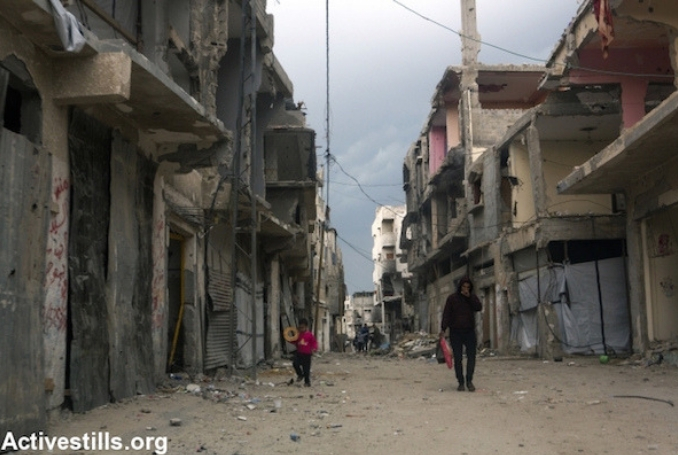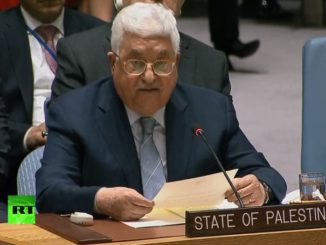
A United Nations (UN) report published Thursday warns that the Palestinian Authority (PA) is facing “unprecedented” financial challenges due to loss of revenue and extreme austerity measures.
The report, issued by the Special Coordinator for the Middle East Peace Process (Unsco) for the upcoming bi-annual meeting of the Ad Hoc Liaison Committee (AHLC) in Brussels on April 30, reads:
“A major fiscal crisis, coupled with growing humanitarian needs and lack of a political prospect for a negotiated solution, threatens the stability of the West Bank and the very survival of the Palestinian state-building effort.”
Palestinian Authority under threat in face of major fiscal crisis, UN report warns: Report issued by the UN Special Coordination for the Middle East Process' office raises alarm over 'unprecedented financial, security and political challenges' https://t.co/hkRHyDxy1v Haaretz pic.twitter.com/R9quZk3G9Q
— Jewish Community (@JComm_NewsFeeds) April 25, 2019
The deteriorating situation of the Palestinian coffers is mainly due to the freezing of revenue by Israel and the ending of international aid.
In 2018, the Trump administration ended approximately US$230 million in development funding to the Palestinian people and another US$360 million in funding to the United Nations Relief and Works Agency for Palestine Refugees in the Near East (Unrwa).
Report issued by the UN Special Coordination for the Middle East Process' office raises alarm over 'unprecedented financial, security and political challenges'https://t.co/eYXFzdUUnQ
— Haaretz.com (@haaretzcom) April 26, 2019
In January 2019, the World Food Programme also cut food aid to about 190,000 Palestinians due to a shortage of funds.
Yet the situation became more intense in February, as Israel’s security cabinet approved the freezing of US$140 million for the fiscal year in tax transfers over the PA’s payments to Palestinians jailed by Israel.
The more the humanitarian situation in #Palestine goes dire, the more aid cuts are announced. The #UN World Food Program announces cuts of critical food services offered to 200.000 of impoverished #Palestinian refugees residing in the #Gaza Strip and the #WestBank. pic.twitter.com/OX60kwBvRE
— Mr. Zero (@MahmoudUsruf) December 21, 2018
This meant the withholding of about six percent of the tax revenue levied on goods it collects on behalf of the PA.
However, the Palestinian authorities stated they will continue making payments to prisoners held by Israel, and their families, and that it will not accept anything but the full amount of clearance revenue due to it.
As a result of this decision, the government has been deprived of some 65 percent of its revenue and forced to take extreme austerity measures.
Israeli occupation approved bill to deduct salaries of Palestinians, who are killed, wounded or arrested by its forces, from tax revenues collected ob behalf of the Palestinian Authority!#IsraeliCrimes pic.twitter.com/Uw5tCrcdmC
— Palestine Post 24 (@PalestinePost24) February 18, 2019
The income reduction for Palestinians will have an impact on purchasing power, which in turn will keep reducing the already dwindling tax revenues.
Meanwhile, on April 21 during the last session of the Arab League Council meeting in Cairo, Arab ministers pledged US$100 million per month to the PA in order to make up for the tax revenues that were withheld by Israel over a long duration.
Arab League Vows $100m per Month to #Palestinian Authority https://t.co/e5vuS2be9O @PalestineChron pic.twitter.com/kHSQyyY3gA
— Palestine Chronicle (@PalestineChron) April 25, 2019
However, as the financial crisis takes a toll on the stability of the government, it will affect talks towards a two-state solution.
(TeleSur, PC, Social Media)







